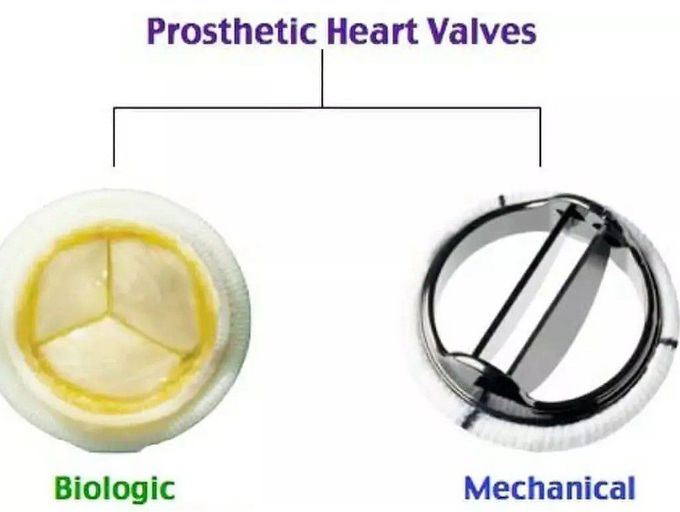


Prosthetic Heart Valves
Prosthetic heart valves are used to replace damaged or dysfunctional heart valves. There are two primary types of prosthetic heart valves: biologic (tissue) valves and mechanical valves. Here's a comparison between the two: Biologic Valves: Material: Biologic valves are typically made from animal tissue, such as porcine (pig) or bovine (cow) valves, or they can be human cadaveric valves. Durability: Biologic valves have the advantage of not requiring long-term anticoagulation (blood-thinning) medication. They are especially suitable for patients who cannot or should not take blood thinners. Lifespan: Biologic valves generally have a limited lifespan, often around 10 to 15 years. They may need replacement over time. Risk of Calcification: There is a risk of tissue valve calcification, which can lead to valve deterioration and may necessitate a replacement. Mechanical Valves: Material: Mechanical valves are made from synthetic materials, such as carbon or titanium, and they have moving parts. Durability: Mechanical valves are highly durable and can last a very long time. They are less likely to degrade over the years. Anticoagulation: Patients with mechanical valves need to take blood-thinning medications (anticoagulants) for life to prevent blood clots. This requires careful monitoring. Risk of Thrombosis: There is a risk of blood clot formation (thrombosis) if the patient's anticoagulation therapy is not well-maintained. The choice between biologic and mechanical heart valves depends on several factors, including the patient's age, overall health, lifestyle, and individual preferences. Younger patients often receive mechanical valves due to their long-term durability, while biologic valves may be preferred for older patients who want to avoid lifelong anticoagulation. It's crucial for patients to discuss the benefits and risks of each type of valve with their healthcare provider to make an informed decision based on their unique circumstances and needs.

